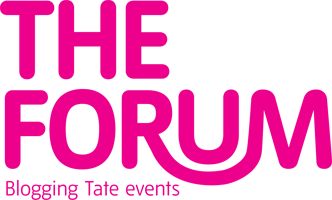 This image used to represent Supernatural Presents... Digital Dreams was created by Zissou, founder of Supernatural Studios.
This image used to represent Supernatural Presents... Digital Dreams was created by Zissou, founder of Supernatural Studios.
The very red Seminar Room of the Tate Modern's Starr Auditorium is littered with laptops and screens on which the most fantastic scenes of Hollywood blockbusters are projected in a loop. A number of media types - recognizable by the impeccable choice of designer denim - and art student types - identified by their very own threadbare denim - are either milling around, attending to the equipment, or hovering about, intimidated. All the while, a lady stands naked in a corner of the room. Is this a revival of the Fluxus happening ? No, it is merely the workshop adjunct to the Supernatural Presents... Digital Dreams, a couple of evening lectures organised by Supernatural Studios in order to allow the leading brains behind special effects technologies to leave us all speechless with their visions of a pixelised future.
Being one of the naive people who often think that what happens on the screen must be the recording of an event that happened in real life, I was attracted to the evening of the 25 March for its selection of speakers from various backgrounds: art, science, advertising, gaming and film. Although their presentations were meant to highlight recent developments and interdisciplinary cross-pollination rather than explain the nuts and bolts to the philistines, most of it was accessible to me in tone and content. In fact, it was striking how accessible the results shown to the audience were, especially in relation to the apparent complexity of the technologies used to achieve them... A crowd that took weeks to simulate looked convincingly boisterous, animals populating a movie could be mistaken for those gallivanting in a forest, ancient Greek sculptures were neither ancient nor Greek but could have fooled even Melina Mercouri.
What came across as a common point between all the lectures was puzzling. It appeared that the most recent developments in digital technology essentially consist in a return to traditional skills or paradigms. Marc Petit introduced the digital sculpting software Mudbox by saying that it was meant to achieve the look of the clay without the mess. Advertising and film special effects as well as game design have been aiming for more and more realism by treating the digital until it looks analogue. In order to achieve this goal, the designers are now turning to fine arts notions of contrast, light, perspective, proportion. Although I admired the works I got to see, I'm still wondering why the limits of existing paradigms are being set to the limitless potential of a technology in the infancy of its development. The prerogatives of the market that finances most of that development? A sheer lack of imagination?
I heard a little giggle of glee. It was the spirit of Umberto Eco relishing the prospect of a new age of the simulacrum. If we're going to use such refined technologies for the sake of (re)producing a reality as close to possible as the ones we can experience on a daily basis, why not just make an improved digital sculpture of the controversial Elgin Marbles, otherwise known as the Parthenon Marbles, and return the originals to Greece, finally allowing Melina Mercouri to rest in peace? Why not reproduce cities in the form of immersive environments and cut down drastically on the carbon footprint created by our travel? Perhaps because there is no substitute for a first-hand experience of the world and digital technologies offer a first-hand experience of technology. Why try to abolish that mediation when we still haven't figured out all the ways in which it can be used?
Still, I can't wait to see what the same experts would have to say ten years from now...
PS: Umberto Eco giggles in my mind only metaphorically.
PPS: If you're still wondering why there was a naked lady in the Seminar Room, perhaps I should clarify that it was actually a sculpture in the tasteful nude genre by the extraordinary Scott Eaton, Founder of Armature Studios and digital sculptor.
Friday, March 28, 2008
The Possibilities
Subscribe to:
Post Comments (Atom)




No comments:
Post a Comment